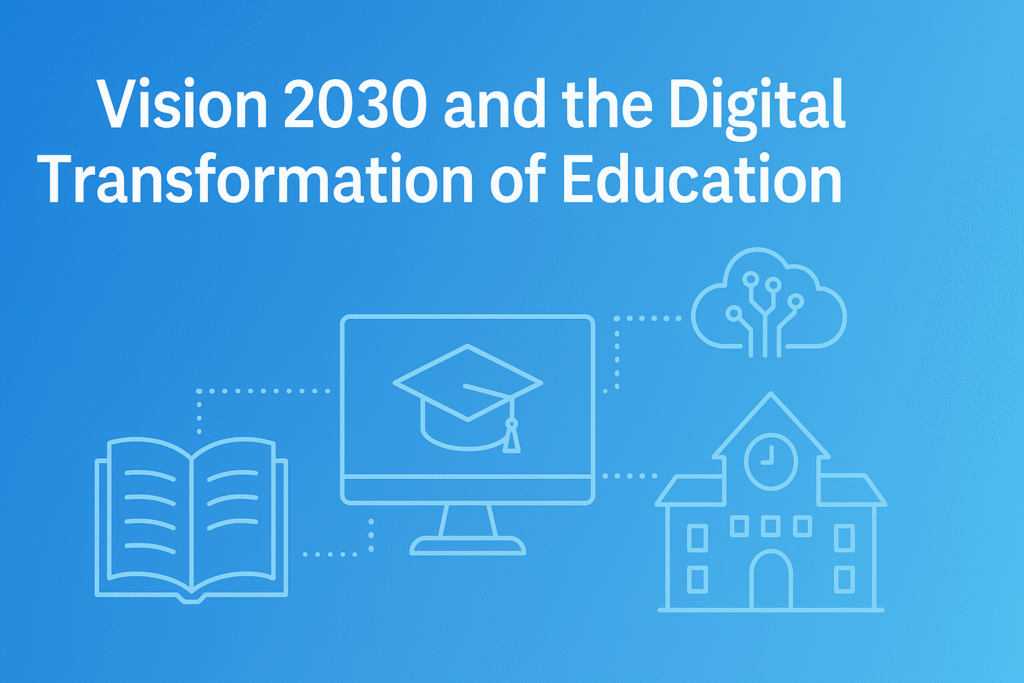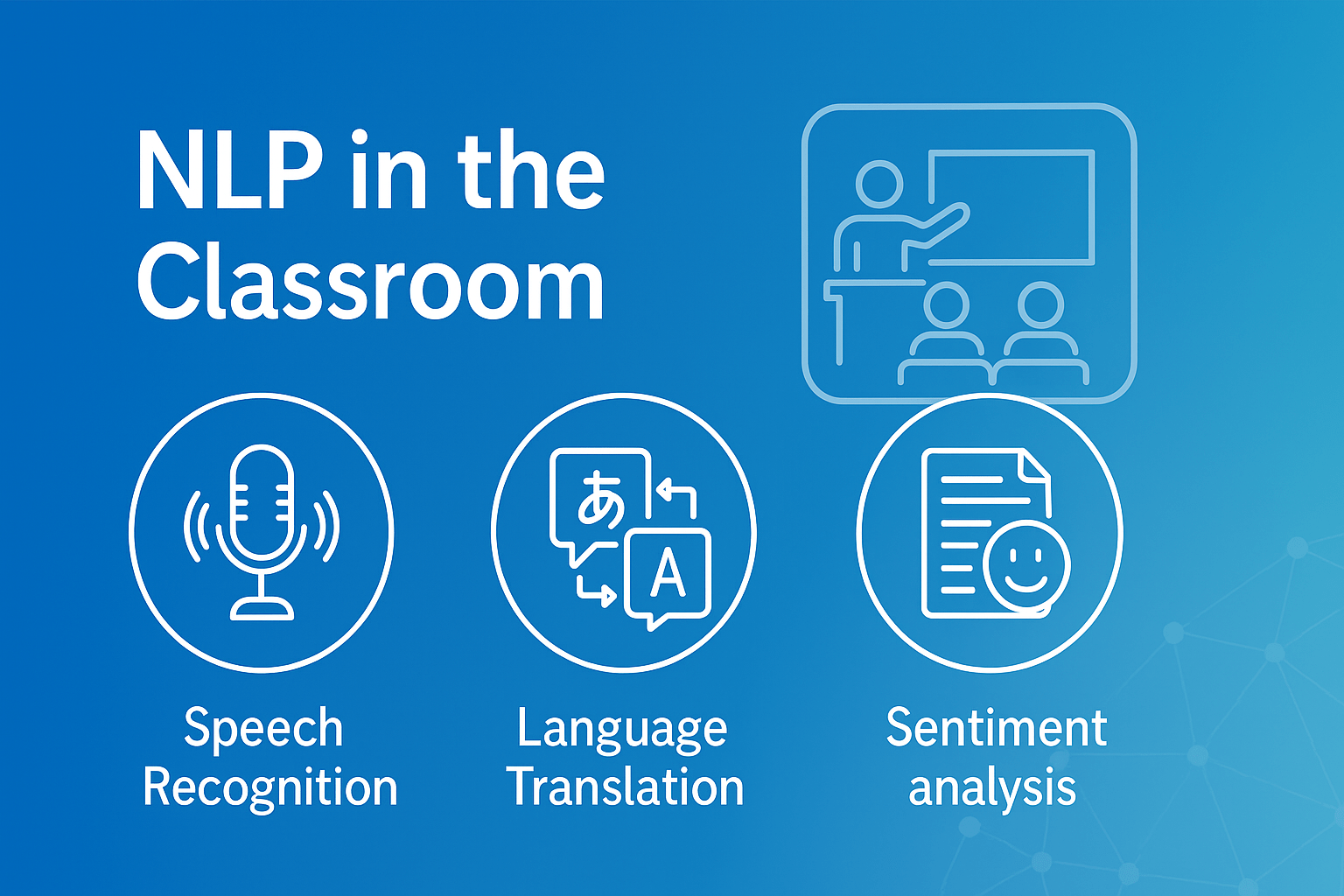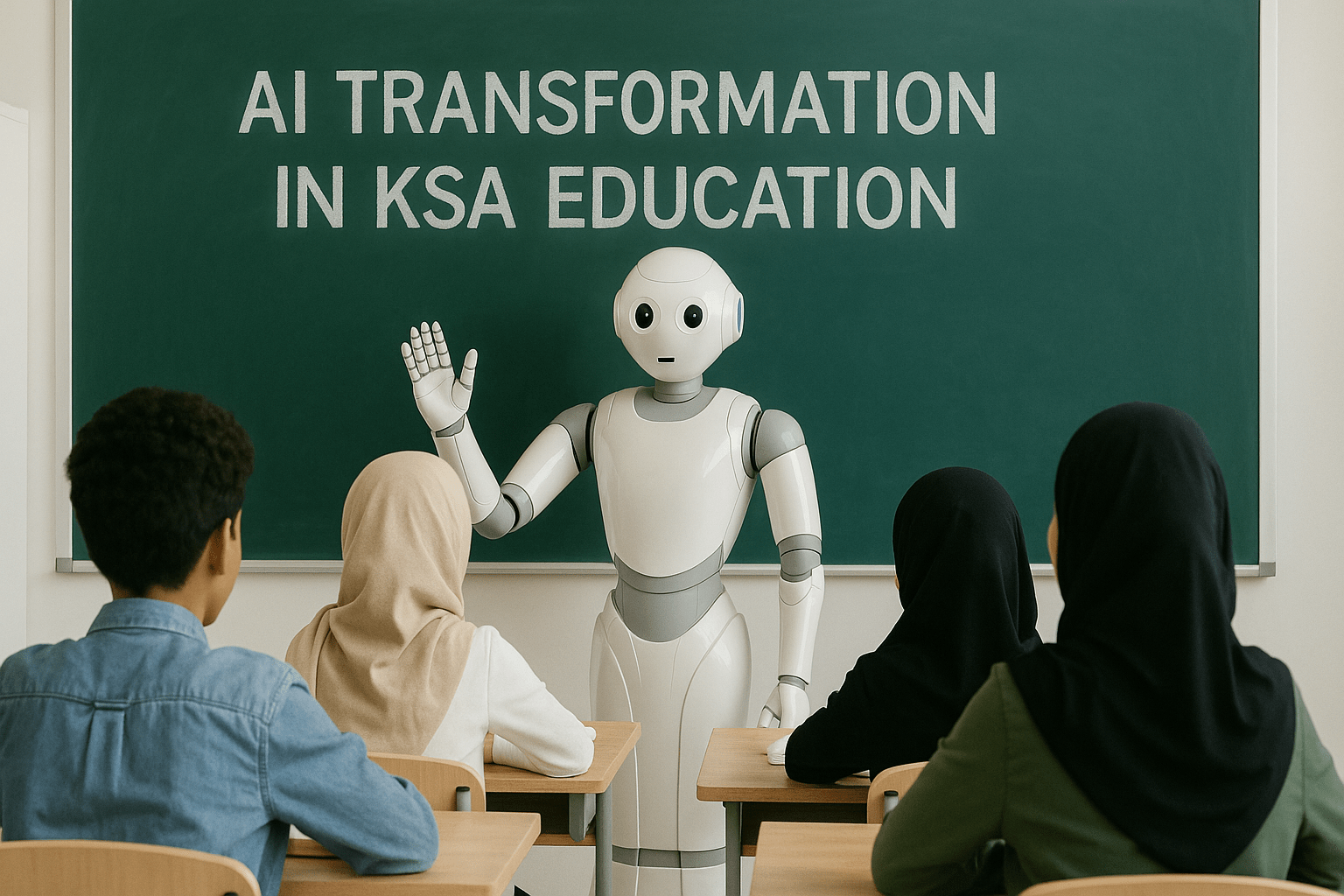AI Transformation in KSA Education: NLP in the Classroom
Saudi Arabia’s education system is undergoing a historic transformation in alignment with the Kingdom’s Vision 2030. As part of this forward-thinking national framework, education is seen as the cornerstone for building a knowledge-based society, nurturing future innovators, and developing a digitally literate workforce. One of the most profound technological enablers in this journey is Artificial Intelligence (AI), and within it, Natural Language Processing (NLP) stands out for its immense potential to redefine classroom learning, teaching efficiency, and curriculum personalization.
Semantic Brains, a leading AI solutions provider in Saudi Arabia, is pioneering the development and deployment of intelligent language-based tools that cater to the specific linguistic and educational needs of the region. This article explores how AI is transforming the Saudi classroom, the benefits it offers, the infrastructure required, and the roadmap for scalable, ethical, and inclusive adoption.
Vision 2030 and the Digital Transformation of Education.

Saudi Arabia’s Vision 2030 emphasizes a strategic overhaul of the education sector. Key policy drivers include:
- Creating a globally competitive education system
- Enhancing learning outcomes and student engagement
- Bridging the skills gap between academia and the labor market
- Digitally empowering teachers and learners
- Expanding access to education across all regions
To meet these goals, the Ministry of Education has introduced smart learning platforms, virtual classrooms, and AI-assisted assessments. AI and NLP technologies are key to enabling data-driven insights, automation, and scalability in these reforms.
What is NLP and Why is it Crucial for Education?
Natural Language Processing (NLP) is a branch of AI focused on enabling machines to understand, interpret, and respond to human language in a meaningful way. It is the core technology behind many applications such as chatbots, virtual assistants, text analysis tools, and language translators.
In the context of education, NLP can be deployed to:
- Facilitate adaptive learning by interpreting student responses
- Automate essay grading and short-answer evaluations
- Translate and localize learning materials across languages
- Provide real-time feedback on written and spoken language
- Enable speech recognition and transcription for inclusive learning
By processing vast amounts of linguistic data, NLP tools can understand student intent, evaluate conceptual understanding, and tailor feedback to improve knowledge retention.
Applications of NLP in the Saudi Classroom

Intelligent Tutoring Systems
NLP-powered tutoring systems engage students through conversational interfaces that mimic human instructors. These tools can interpret questions, guide problem-solving, and adjust the difficulty level based on the learner’s ability. In a Saudi context, these systems support bilingual instruction and integrate Islamic cultural references to maintain relevance.
Automated Assessment and Feedback
NLP enables automatic grading of written assignments by evaluating grammar, coherence, vocabulary usage, and argument structure. These systems reduce teacher workload and provide timely feedback to students, thereby closing learning gaps efficiently.
Multilingual Education Tools
Given the multicultural composition of classrooms in the Kingdom, NLP-driven translation tools facilitate real-time conversion between Arabic, English, and other languages. These tools support English-language learning while ensuring comprehension through Arabic explanations.
Content Recommendation Engines
NLP is used to analyze a student’s learning history, preferences, and performance to suggest personalized reading materials, videos, and assignments. This adaptive learning pathway enhances motivation and caters to different learning styles.
Voice Interaction and Transcription
Speech-to-text applications powered by NLP allow students to dictate notes, complete assignments verbally, and interact with voice-activated educational software. This is particularly helpful for students with disabilities or literacy challenges.
Plagiarism Detection and Writing Assistance:
NLP algorithms can detect paraphrased and copied content across student submissions. Additionally, they assist in enhancing vocabulary, sentence structure, and writing tone, contributing to academic integrity and communication skills.
Reading Comprehension Analytics
Advanced NLP tools can evaluate how students interact with digital texts—how long they spend reading, which words they struggle with, and what kind of questions they generate. This data helps teachers identify comprehension barriers and tailor instruction accordingly.
Sentiment Analysis for Emotional Support
By analyzing the tone and emotional content of student submissions, NLP tools can flag signs of stress, disengagement, or learning difficulties. Educators and counselors can use this information to provide timely interventions.
How Semantic Brains Is Supporting AI Transformation in KSA Education
Semantic Brains is playing a leading role in Saudi Arabia’s AI-driven education transformation by developing AI and NLP-powered tools tailored to the local context. With a focus on Arabic language processing, their solutions support personalized learning, automated assessments, multilingual instruction, and teacher workload reduction. By aligning its innovations with Vision 2030, Semantic Brains is helping to build a smarter, more inclusive, and future-ready education system in the Kingdom.
NLP and the Arabic Language: Localization Challenges and Opportunities.
Arabic presents unique challenges for NLP due to its complex morphology, diverse dialects, and script-based nuances. Developing effective educational NLP tools for Saudi Arabia requires:
- High-quality annotated datasets in Modern Standard Arabic and regional dialects
- AI models trained on educational texts, exam papers, and learning content
- Support for right-to-left script rendering in text-processing tools
Semantic Brains has made significant progress in creating Arabic NLP engines optimized for Saudi classrooms, focusing on semantic understanding, context-awareness, and cultural sensitivity.
Infrastructure and Implementation Requirements:
Deploying NLP in Saudi schools requires more than just software. A complete AI integration strategy includes:
- Digital Infrastructure: Reliable internet connectivity, cloud storage, and smart devices in classrooms.
- Teacher Training: Equipping educators with skills to use AI tools effectively and responsibly.
- Policy and Governance: Establishing ethical frameworks for data usage, bias mitigation, and student privacy.
- Curriculum Alignment: Integrating NLP tools into standardized curricula, assessments, and learning outcomes.
Public-private partnerships, such as those between Semantic Brains and the Ministry of Education, can accelerate implementation through joint R&D, pilot programs, and platform development.
Benefits of NLP Integration in KSA’s Education System
- Personalized Learning NLP adapts content based on individual student profiles, allowing every learner to progress at their own pace. This personalization is especially crucial for bridging learning gaps among students from different socio-economic backgrounds.
- Equitable Access. By providing language translation, voice assistance, and localized content, NLP expands educational access to underserved regions and marginalized groups.
- Efficiency and Scalability AI tools automate routine administrative tasks, freeing educators to focus on higher-order teaching. NLP enables cost-effective scalability for large classrooms and national education systems.
- Real-Time Insights: Teachers and school leaders receive dashboards with data on student engagement, comprehension levels, and topic mastery. These insights enable timely interventions and resource optimization.
- Lifelong Learning and Workforce Alignment NLP-based platforms support adult education, vocational training, and professional certification by making learning content accessible, searchable, and contextually relevant.
Ethical Considerations and Data Privacy.
As NLP tools analyze sensitive student data, it’s critical to ensure:
- Data Anonymization: Personal identifiers must be removed during analysis.
- Consent and Transparency: Students and parents should understand how data is used.
- Bias Reduction: NLP models should be audited for gender, linguistic, or cultural biases.
- Compliance: All tools must adhere to Saudi Arabia’s data protection laws and Vision 2030 ethical AI principles.
Semantic Brains implements federated learning and differential privacy methods to protect student data while maintaining model accuracy.
The Road Ahead: Future Innovations in NLP for Education.
The next generation of NLP tools in education may include:
- AI Co-teachers: Virtual assistants that support both students and teachers during lessons.
- Emotion-Aware NLP: Detecting and adapting to student emotions in real-time.
- Gamified Language Learning: AI that adapts game content based on vocabulary acquisition.
- Blockchain-Based Transcripts: Secure academic records powered by AI-authenticated NLP.
- Cross-Platform Integration: Seamless use of NLP tools across web, mobile, and VR educational environments.
Saudi Arabia’s growing investment in AI R&D, STEM education, and smart infrastructure creates fertile ground for these advancements.
Conclusion
The integration of AI NLP, into Saudi Arabia’s education system is more than a digital upgrade. It represents a paradigm shift in how learning is delivered, understood, and scaled. Semantic Brains is at the forefront of this transformation, building Arabic-first, culturally aligned, and ethically grounded NLP solutions for the Kingdom’s classrooms.
By investing in infrastructure, teacher training, and ethical governance, Saudi Arabia can create an inclusive, intelligent, and adaptive education system that meets the needs of a dynamic future economy. NLP will be instrumental in shaping this future—empowering educators, engaging students, and realizing the full promise of Vision 2030.


